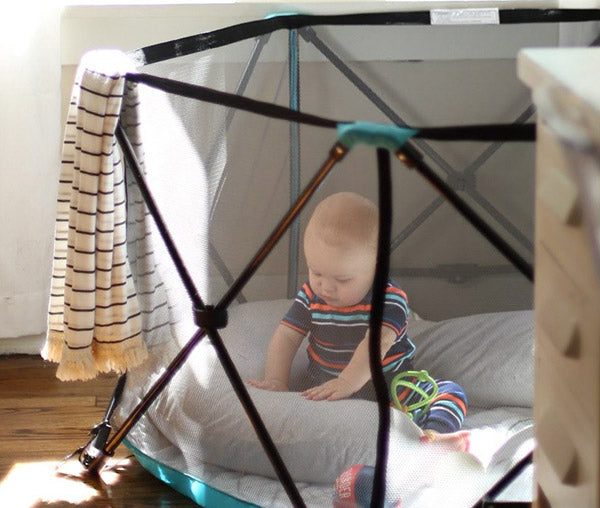
October 30, 2020
Surviving when Baby Doesn't Sleep
Sleep deprivation is a serious concern for many new parents. Some babies seem to come home from the hospital sleeping through the night. Others, however, never seem to sleep at all - and it doesn't take long for their parents to start feeling the effects of those sleepless nights.
If you're in the middle of that sleep deprivation cycle, take heart! There are several steps you can take to get through this season of your life until your baby is older and able to sleep through the night.

The Symptoms of Sleep Deprivation
Getting up every couple of hours to tend to a crying baby can quickly leave anyone feeling exhausted. If you're experiencing any of these symptoms on a regular basis, you've moved beyond tired into the realm of sleep deprivation.
- Memory problems - For example, you can't actually remember whether or not you took a shower yesterday . . . or the day before, either.
- Trouble thinking - Do you find yourself feeling as though you're constantly thinking through a haze? Does the idea of working on a logic puzzle make you shudder?
- Changes in mood - Are you struggling to get along with your spouse? Are you constantly weepy?
- Increased appetite - Are you desperate for a snack just an hour after a meal?
- Decreased coordination - You just stumbled over absolutely nothing on the floor for the fourth time today!
- Susceptibility to illness - You aren't leaving the house, and yet somehow, you're always fighting a cold!
How's a parent to function?
Combatting Sleep Deprivation
You can't help the fact that your baby won't sleep. That doesn't mean, that you have to live in a sleep-deprived state forever. These strategies will make it easier for you to keep functioning in spite of your little one's less-than-stellar attitude toward sleep.
1. Step away from the coffee.Yes, caffeine can give you the boost you need to feel more functional in spite of your sleepless night. It can also leave you lying in bed with your eyes wide open long after you should have turned in for some sleep! Give up the coffee so that when you do have the opportunity to get some sleep, you can.

2. Move baby closer to you.
If you're a nursing mom, you don't have a lot of options for help with the overnight wake sessions. Moving baby closer to you can mean a lot less disruption for both of you! Even if you swore you'd never keep baby in your room, moving your baby in with you and placing them in a bassinet or other safe sleeping space can be key to helping both of you get back to sleep faster after those night feedings, especially as you become a pro at nursing in the dark.

3. Enlist some help.
If you're nursing, it can be hard to hand off those nighttime sessions. Fortunately, you still don't have to do it alone! If your milk supply is well-established, try pumping and having your spouse feed baby a bottle. If your spouse is unable to help you out with overnight feedings (some babies will only settle for Mama in the middle of the night!), try enlisting the help of a friend or relative who can take over for a few hours so you can get a nap.

4. Rest when you can.
Your to-do list has increased exponentially with the arrival of your baby - or has it? In those early days, in particular, take the time to rest when you can. Limit visitors to people who understand that this is a difficult time in your life and who will take steps to help you, rather than being one more thing that you have to deal with. Ask your mom, your spouse, or your best friend to help out with things that will genuinely be helpful and take some of the load off of your plate. The more rest you can get during the day, the better you'll be able to handle the overnight madness.
5. Write things down.
Remember that one of the symptoms of sleep deprivation is ongoing brain fog. Take the time to write down essential things: feedings, changes, lists of things you need from the grocery store. You can even keep an ongoing list of things you need so that when someone offers to help, you actually have an answer for them instead of blinking blearily and saying, "Yeah, I could use some help..."
Dealing with sleep deprivation is hard, especially if it lasts beyond the early newborn stage. By learning how to cope effectively, however, you'll find that you're much better prepared to take care of your new baby and the other needs of your household.

Feature image: IG @brittanyviklund